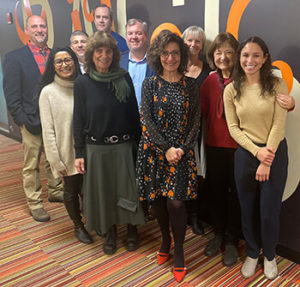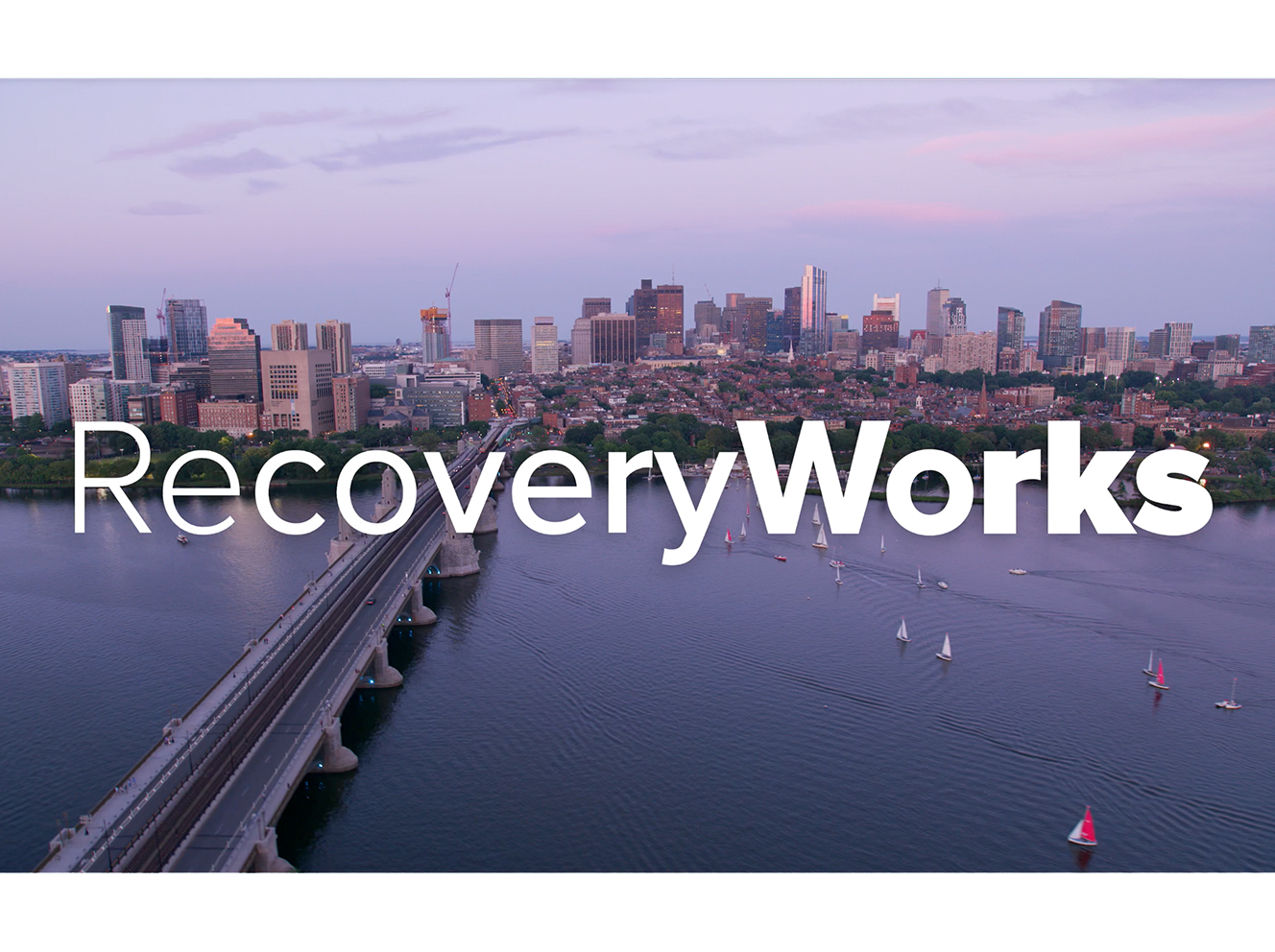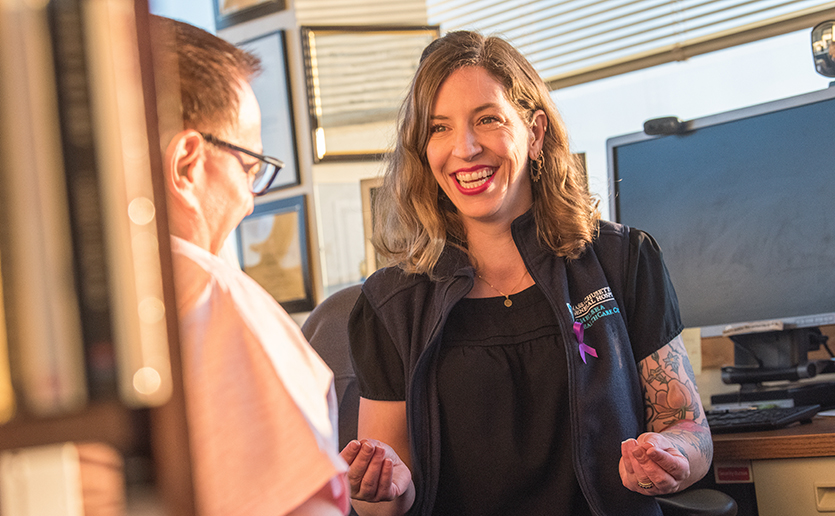Addiction cost John his marriage, his burgeoning career as a research scientist and very nearly his life. With the support of family, he was eventually able to overcome his addiction. And yet despite his newfound sobriety, John struggled to see a path forward — especially when it came to reclaiming his career.
“I’d lost hope, and without hope it’s hard to work toward a better future for yourself,” he says. But with the help of RecoveryWorks — a novel recovery support program at Massachusetts General Hospital — John rediscovered his sense of purpose. Through the program, John received peer support, career coaching and mentoring. He learned how to talk to potential employers about his history and received help with his resume and applications. Today, John is back doing what he loves — working as a scientist.
“I’m happier than I’ve ever been,” he says. “RecoveryWorks gave me back my hope.”*
As part of its long-standing commitment to building healthier communities, Mass General is dedicated to helping patients overcome substance use disorder. Research shows that one of the best predictors of success when it comes to overcoming addiction and maintaining recovery is employment. And that idea is at the heart of RecoveryWorks. Founded in 2019, RecoveryWorks is dedicated to getting individuals in recovery back in the workforce by connecting them with employment opportunities that match their level of experience and skills and offering the coaching and mentorship they need to succeed in their dream jobs.

“There is a void in services provided to help people in recovery restart their lives,” says Estee Sharon, PsyD, a clinical psychologist at Mass General and the founder of RecoveryWorks. “We designed RecoveryWorks to provide a nurturing environment where people can take the necessary steps to reclaim their dreams, return to the workforce and learn to be proud of themselves again.”
Employment Plays a Vital Role
According to a recent study, nearly one in ten Americans is living in recovery from some form of substance use disorder. Although around 75% of people seeking recovery from a substance use problem achieve their goal, it’s never an easy road.
“Without employment, it’s often difficult for people to initiate and maintain addiction recovery,” says David Eddie, PhD, attending psychologist in Mass General’s Department of Psychiatry.
Employment provides financial stability (and often health insurance), as well as social support and a sense of legitimacy. People who are employed have lower rates of relapse and association with criminal activity. Studies have shown that securing a job is the second highest priority (behind maintaining abstinence) for people leaving residential treatment. But that’s often easier said than done.
“For a person in recovery, the barriers to employment can be enormous,” Dr. Sharon says. “They are not only dealing with issues of their own self-perception — loss of self-esteem and self-efficacy, for instance — but they must also contend with the perception of others, such as potential employers.”
Confronting Stigma and Bias
To confront internalized stigma and unlock participants’ potential, RecoveryWorks offers a range of services including one-on-one mentoring; recovery-related educational and skill-based meetings; individualized career guidance and coaching; career and anti-stigma workshops; and peer support. There is also legal assistance available and a stipend to help participants defer costs related to their job search — such as new shoes, resume paper or a haircut.

“They help you see yourself as a person with strengths and talents — not just as someone in recovery,” says Pravin, a RecoveryWorks participant now working at Mass General. “When you struggle with addiction, it can be hard to remember the person you were before.”
To combat the external bias, RecoveryWorks partners with employers and recruitment firms, functioning as a liaison and advocate for participants. When a participant accepts a new job, the team will often work to socialize that participant in anticipation of the culture shock that can often come with a new role.
Five Year Commitment
Perhaps the most unique element of RecoveryWorks however is the time commitment it makes to every participant. The benefits of the program don’t end with a job offer. All of the services and supports are available to participants for five years.

“To me, that’s the draw of the program,” says Joe LaFratta, head of mentors and program outreach at RecoveryWorks. LaFratta, who spent 20 years as a federal probation officer, says he was drawn to the program because of its capacity to build people back up. “Sometimes, the easiest part is finding the job. It’s what comes next — dealing with being employed, staying sober, finding new ways to manage stress — those are the times when people often need support the most.”
Although still in its infancy, Dr. Sharon believes RecoveryWorks represents nothing less than a paradigm shift in recovery culture — one that can have a major impact on the broader addiction medicine community.
“This is a new, forward looking way to approach our mission — one that helps diminish the stigma and helps us recognize that people in recovery are everywhere, and have so much to offer,” she says. “Nobody can go and start a new beginning, but anyone can start today and make a new ending.”
*To hear more from John and other RecoveryWorks participants, click here.
RecoveryWorks was launched with generous support from the Commonwealth of Massachusetts but is now 100% dependent on philanthropy. To make a gift to support RecoveryWorks, click here.
To learn more about how you can support addiction medicine at Mass General, contact us.

